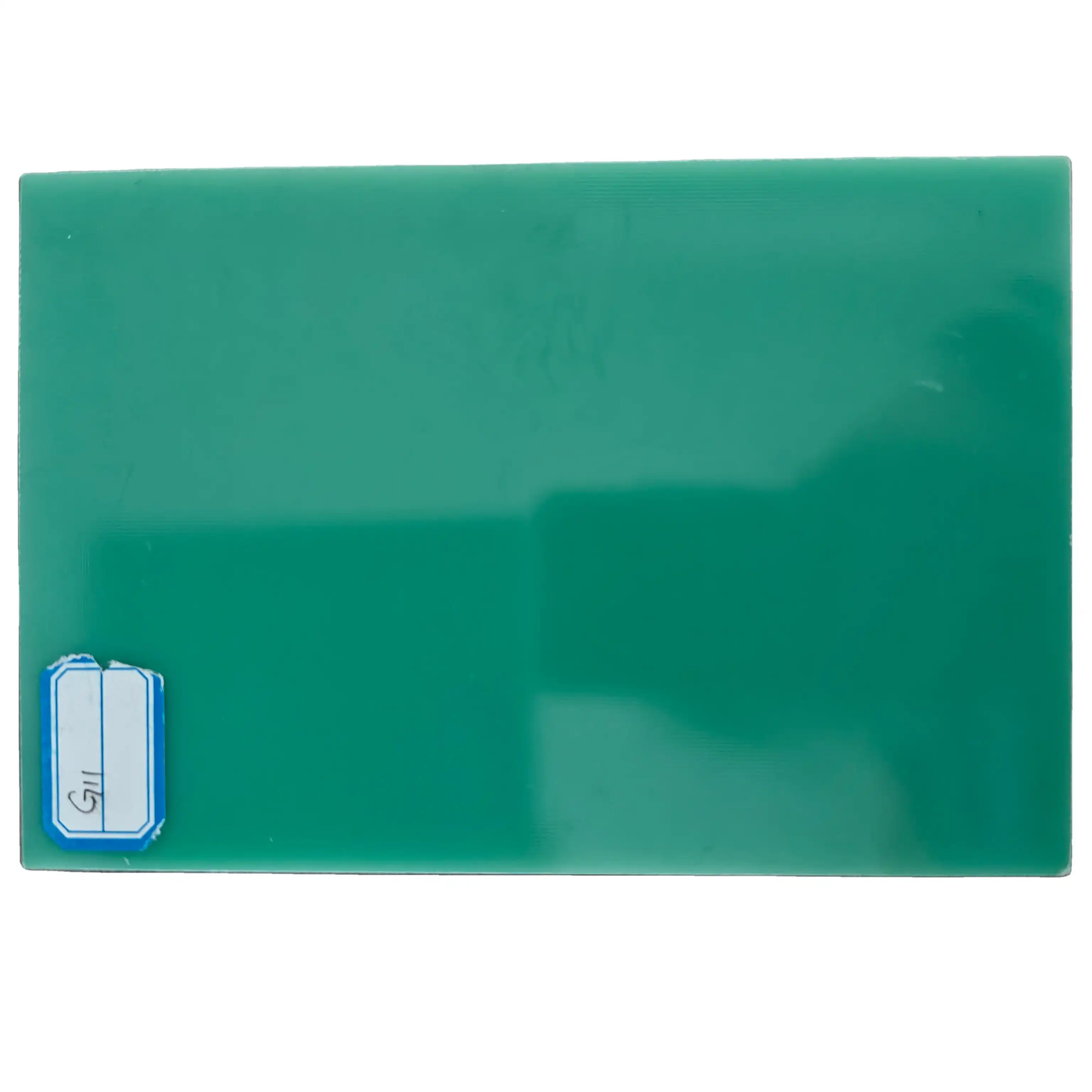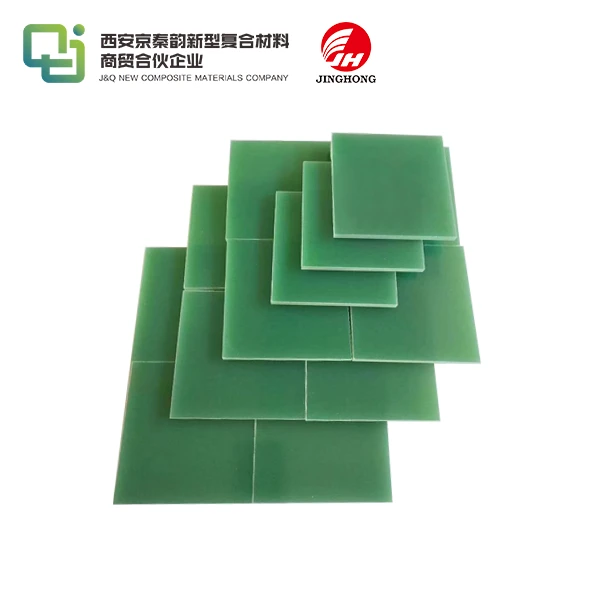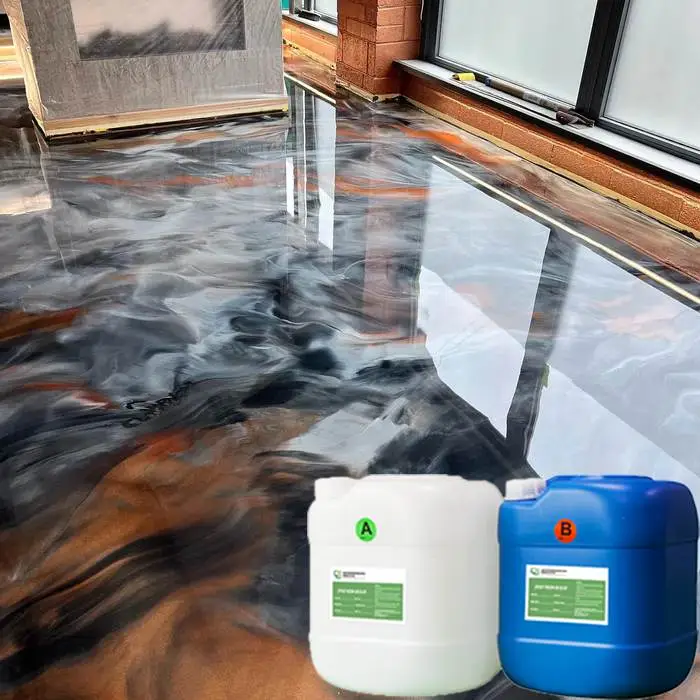Is 3240 Epoxy Fiberglass Sheet suitable for electrical insulation?
2024-11-08 17:10:44
When it comes to electrical insulation materials, selecting the right option is crucial for ensuring the safety, durability, and functionality of electrical systems. Among the many materials available, 3240 epoxy fiberglass sheet stands out as one of the most reliable and effective choices. But is it truly suitable for electrical insulation? In this blog, we’ll dive into the key properties and benefits of 3240 epoxy fiberglass sheet, explaining why it’s an ideal choice for electrical applications and what makes it unique in the world of insulation materials.
What is 3240 Epoxy Fiberglass Sheet?
3240 epoxy fiberglass sheet is a high-performance laminate material composed of woven fiberglass cloth impregnated with epoxy resins. This combination results in a strong, versatile material known for its high mechanical strength, electrical insulation, and resistance to high temperatures. The term "3240" refers to a specific grade of epoxy fiberglass sheet that meets strict industrial electrical and mechanical performance requirements.
During the production process, the fiberglass fabric is meticulously soaked with the epoxy resin to guarantee uniform distribution, resulting in a lightweight yet extremely robust sheet. This method allows the sheet to retain its insulating qualities under changing environmental circumstances, making it very desirable in areas like as electronics, electrical engineering, and construction.
Electrical Insulation Properties of 3240 Epoxy Fiberglass Sheet
One of the most significant benefits of using 3240 epoxy fiberglass sheet is its exceptional electrical insulation capabilities. The combination of epoxy resin and fiberglass gives it a high dielectric strength, meaning it can withstand significant electrical voltage without breaking down or allowing current to flow through. This makes it a top choice for electrical components that require reliable insulation to prevent short circuits, overheating, or other failures.
High Dielectric Strength
One of the key reasons that 3240 epoxy fiberglass sheet is appropriate for electrical insulation is its outstanding dielectric characteristics. The material can resist high voltages without electrical breakdown, making it ideal for use in transformers, circuit boards, electrical panels, and other high-voltage situations.
Thermal Resistance
Electrical insulation materials need to perform well under a range of temperatures. 3240 epoxy fiberglass sheet can operate in environments with temperatures up to 155°C (311°F), which is crucial for electrical components that generate heat during operation. Its ability to maintain insulating properties at high temperatures adds to its appeal for electrical insulation applications.
Moisture Resistance
Many electrical systems are exposed to moisture, which can significantly degrade the performance of insulation materials. Fortunately, 3240 epoxy fiberglass sheet exhibits excellent resistance to moisture absorption, making it ideal for use in humid environments or applications where water exposure is a concern.
Low Conductivity
3240 epoxy fiberglass sheet has very low electrical conductivity, ensuring that it does not allow current to pass through. This low conductivity is essential for preventing electrical leakage, which can cause system malfunctions or hazards.
Why Choose 3240 Epoxy Fiberglass Sheet for Electrical Insulation?
The use of 3240 epoxy fiberglass sheet for electrical insulation comes with numerous advantages. Below, we explore why it's a favored option for professionals in the electrical industry.
Superior Mechanical Strength
In addition to its impressive electrical properties, 3240 epoxy fiberglass sheet is also known for its mechanical strength. This material offers excellent resistance to impact, abrasion, and compression, which means it can withstand the physical stresses often encountered in electrical applications. Whether it’s used as a structural layer in electrical devices or as insulation within power transformers, the sheet maintains its integrity and performance.
Versatility and Customization
Another reason why 3240 epoxy fiberglass sheet is popular for electrical insulation is its versatility. The material can be easily customized to fit various sizes, thicknesses, and shapes to meet specific needs. It can be machined, cut, and drilled with ease, allowing manufacturers to create precisely engineered components for electrical equipment. Whether you're working on small electronics or large power systems, 3240 epoxy fiberglass sheet can be tailored to suit your requirements.
Cost-Effective Performance
When compared to other insulating materials, 3240 epoxy fiberglass sheet offers an excellent balance of cost and performance. While high-end materials like mica or ceramic might offer superior properties in certain areas, they often come with a higher price tag. 3240 epoxy fiberglass sheet provides a more budget-friendly option without compromising on essential properties like dielectric strength, thermal resistance, and moisture resistance. For many applications, this makes it an ideal choice for both large-scale and smaller-scale projects.

Common Applications of 3240 Epoxy Fiberglass Sheet in Electrical Insulation
Due to its outstanding electrical and mechanical properties, 3240 epoxy fiberglass sheet is used in a wide range of electrical applications. Here are a few of the most common uses:
Electrical Panels and Circuit Boards
3240 epoxy fiberglass sheet is widely used in the manufacturing of electrical panels and circuit boards due to its excellent dielectric properties and strength. It provides reliable insulation, helping to prevent short circuits or electrical faults.
Transformers
In transformers, where electrical components are exposed to high voltages and temperatures, 3240 epoxy fiberglass sheet is used as insulation to ensure safe and efficient operation. Its thermal resistance helps to prevent overheating, while its electrical properties protect against electrical faults.
Switchgear
The sheet is often employed in switchgear applications, where electrical insulation is necessary for protection and safety. Its mechanical strength and moisture resistance make it suitable for these critical components in power systems.
Motors and Generators
In motors and generators, 3240 epoxy fiberglass sheet acts as insulation for windings and other components, providing protection against electrical currents while maintaining the overall efficiency of the system.
Electrical Connectors
Electrical connectors often require insulation materials to prevent electrical leakage. 3240 epoxy fiberglass sheet is used in these connectors to maintain safety and performance in various electrical devices and systems.
Conclusion
In conclusion, 3240 epoxy fiberglass sheet is an excellent choice for electrical insulation. With its superior dielectric strength, thermal resistance, mechanical strength, and versatility, it ensures reliable performance in a wide range of electrical applications. Whether you’re working on industrial machinery, power transformers, or circuit boards, this material is well-suited to provide the insulation needed to maintain safe and efficient electrical systems.
Contact Us
If you're considering 3240 epoxy fiberglass sheet for your next electrical project, reach out to us for more information on how this versatile material can meet your needs. For more details, feel free to contact us at info@jhd-material.com.
References
1. "High-Performance Electrical Insulating Materials: Epoxy Resin-Based Laminates," Industrial Materials Journal, 2022.
2. "Applications of Epoxy Fiberglass Sheets in Electrical Insulation," Journal of Electrical Engineering, 2021.
3. "The Role of Dielectric Strength in Insulating Materials," Electrical Safety and Materials Guide, 2020.
4. "Properties and Performance of Epoxy Laminates for Electrical Systems," Electrical Materials and Components Research, 2019.
5. "Thermal and Moisture Resistance of Epoxy Fiberglass Sheets in Electrical Equipment," Journal of Insulation Technologies, 2021.
6. "Cost-Effectiveness of Epoxy Fiberglass Sheets in Electrical Applications," Industrial Economics Review, 2020.







